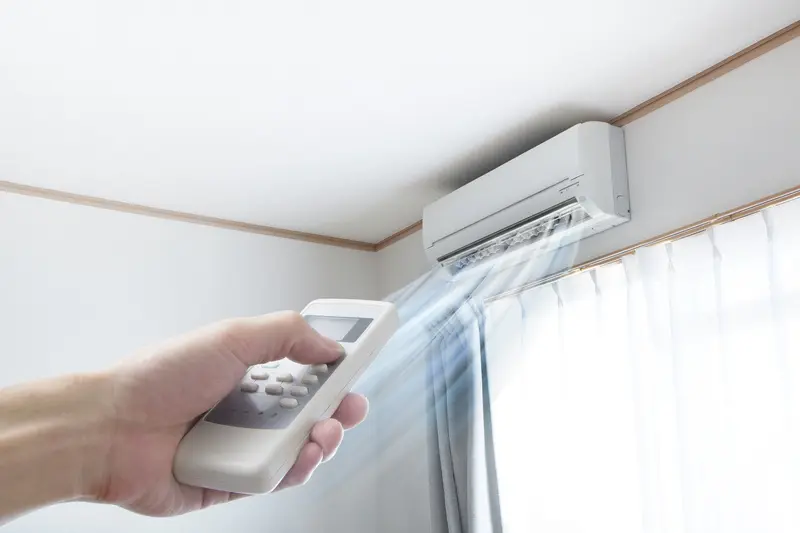We’re not here to knock evaporative cooling—it’s an effective and efficient means to cool a living space in many homes. It requires little maintenance, and is well-suited for homes in dry and arid climates. But, evaporative cooling isn’t right for every home, and yours may be one.
For instance, they struggle when there is too much humidity in the air. Where a centralized air conditioner that uses refrigerant can bring down the temperature lower than the average homeowner would ever even need, an evaporative cooler has limitations and simply can’t lower the ambient temperature as much as a vapor-compression or refrigerant-based system.
So, Should I Go Ductless?
There are a number of benefits to going ductless rather than sticking with the evaporative cooling method. First off, a ductless system operates on heat pump technology. This means that not only does it provide adequate cooling in the summertime, but it brings in sufficient heat during the winter, too.
Other benefits include:
- Zone Control Cooling: The setup of a ductless system is a bit different—instead of one outdoor unit and one indoor unit and a network of ducts, a ductless system is comprised of an outdoor unit connected to up to four indoor air handlers, each individually installed in the rooms you want to bring conditioned air to. This individuality also means you can adjust the cooling and heating preferences to that specific room or area in your home.
- Energy Savings: The zone control feature helps lower energy costs, but so too does the fact that ductless systems use smaller motors than conventional heat pumps and air conditioners. Additionally, since they don’t have ducts, you don’t run the risk of losing conditioned air through duct breaches.
- Flexibility: If you have a smaller space, or if you just don’t want to waste space in a larger home on ductwork, a ductless system allows you flexibility. They take up very little space overall and are a great choice for smaller homes or even multi-level homes!
- Improved Indoor Air Quality: We mentioned ductwork breaches above—not only does this contribute to efficiency problems but it can also impact your indoor air quality. A ductless system removes this risk!
Ductless Systems Have Unique Repair Needs
We do need to highlight the importance of professional ductless installation and maintenance.
This isn’t necessarily a disadvantage, but rather something to be aware of; ductless systems have unique repair needs that other systems simply don’t have, particularly if they were not professionally installed.
Take the air handlers, for instance. They each have refrigerant and condensate lines running behind them. This means that every one of these air handlers has the potential to suffer from a leak. If this occurs, it can cause damage to the corresponding air handler, as well as the wall it’s attached to.
Also, you may at some point, due to wear and tear, have an air handler break down or struggle to blow out cool (or heated) air. The good news in this case is that even if one air handler breaks, you still have the other ones to keep you comfortable. But if you do have even just one troublesome air handler, you want to have it checked on right away.








